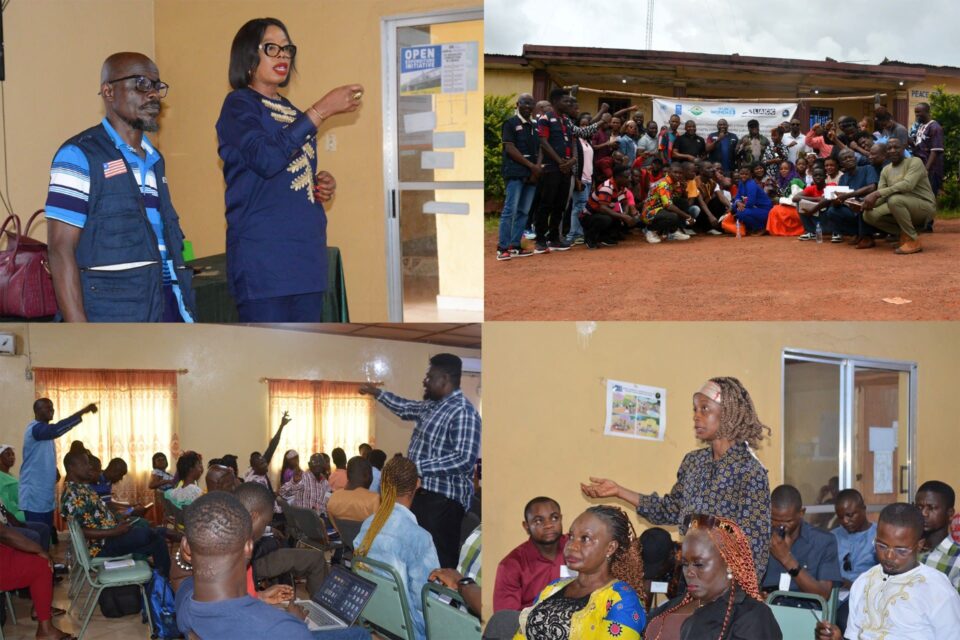Monrovia, Liberia–To deter and prevent corruption, the Social Accountability project funded by the United Nations Peacebuilding Fund and implemented by United Nations Development Programme (UNDP), UN Women, Integrity Watch Liberia, and supporting Integrity Institutions, convened a three-day training organized by the Liberia Anti-Corruption Commission LACC with support from UNDP, the UNDP says.
The Commission brought together personnel of integrity institutions & the Judiciary on legislation and accountability instruments.
Aimed to educate participants on the concept of corruption and existing legal frameworks, the workshop held recently, gathered 84 personnel, (46 men and 38 women) from Bong, Lofa, Margibi, and Nimba counties to foster inclusive participation and promote transparency and accountability within communities.
The Liberia Anti-Corruption Commission (LACC) Executive Chairperson Cllr spoke to participants. Alexandra K. Zoe said the training was intended to enhance citizens’ corruption reporting mechanisms. She also encouraged participants to bring forth their ideas to improve the fight against corruption.
“We encourage you to form strategic partnerships with integrity institutions and report corruption from time to time. Keep us busy. Let your advocacy lead to an audit. Let your advocacy give us intelligence tips, let your advocacy lead to investigations; let your advocacy lead to prosecution,” Zoe said.
The National Economist of UNDP Stanley Kamara noted that the training was crucial for enhancing the rule of law, accountability, and good governance. He said it ensures that laws and regulations are understood and applied correctly, fostering a fair society.
Kamara added, “Through its public outreach and workshops, the LACC continues to empower citizens and communities, encouraging greater participation in promoting social accountability and transparency in good governance”.
With various interactive presentations and discussions during the training, participants were enlightened on the broad concepts of corruption, transparency and accountability mechanisms, and existing anti-corruption frameworks. The discussions sparked debate among participants and facilitators about how some high-profile corruption cases are handled, noting that the LACC seems not to be acting.
During the debate, the LACC Executive Vice Chairperson, Ernest R. Hughes clarified that cases of corruption delay because no court is specifically assigned for corruption cases as opposed to rape cases. He added that another delay is caused by the fact that the LACC does not have the power to directly take cases to court but must go through the Ministry of Justice.
Closing the training, on behalf of the LACC, Hughes expressed appreciation to the UN for its continuous support of the programs and activities of the LACC and to the United Nations Peacebuilding Fund for providing funds for the nationwide preventive and public education initiatives. He encouraged participants to apply what they have learned to transfer their knowledge to other colleagues and continue to foster discussions around integrity and accountability in workplaces and communities.
The Social Accountability project continues to support the LACC in championing public awareness, education campaigns, and various stakeholders’ engagements in the 15 counties. The project will heighten awareness of service delivery to the public and help service providers transform their internal procedures and organizational culture consistent with their publicly proclaimed service delivery standards.
The project intends to develop a simplified and streamlined version of anti-corruption legislation that is easier for citizens, businesses, and government agencies to understand and comply with while maintaining the core principles and effectiveness of existing anti-corruption laws.
Additionally, it helps to strengthen the knowledge and skills of judiciary and integrity institution staff on anti-corruption frameworks, policies, and best practices to improve their ability to effectively prevent, investigate, and prosecute corruption cases.

